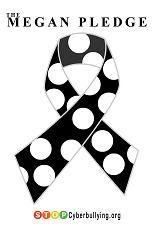It's a meltdown.
What was the trigger? I can't be sure now. But the words that come from my child's lips are not his own. They are horrible, ugly, painful. He's been working hard not to use them, but when the pain is there, they capture it so well, project it so well.
The words he calls me are nothing. You all know them, everybody uses them. If we completely squash them, as he gets older and it becomes the norm for people to use them, it will only emphasize his differences. Adults use them all the time, after all. And its the pain he's trying to communicate. The frustration, the anger, the shake-me-because-I'm-not-getting-it pain. I get that. I may not like it, but I get it.
It's the words he directs at himself that really take me by the heart and soul. The self-deprecation. The words he uses for it. Yes, we know those words, too. Stupid. Ugly. Fat bastard. Sometimes he sprinkles them with the fancy words that he prefers, such as scoundrel, smart alec, aggressive, repugnant, obnoxious. Then there is his new star word:
Retard.
Yes, we all know the word. We know what it means. We know how it is used. We know Joey hears it applied to him.
He hears you. He knows what you are saying, and what you mean. He knows it is an ugly, deliberately painful word. It's a sword in his hand.
When we talk about SIBs, we often talk about physical injury. People who bite themselves. Cut themselves. Hit their heads against things, or punch themselves bloody. We know it is scary (though until it is someone you love, you can't imagine how scary it can be.) We may even understand the extension of that pain and injury to others: people who lash out, throw things, flail, become aggressive in the face of the frustration, the stress, the disorientation, the pain.They are "challenging behaviors." We want them to stop. And when we understand the source, we know its not our pain that needs to stop, not our frustration that really matters. It's theirs.
What about those whose self-injury is invisible? What about self-deprecation? What about self-injury that is psychological?
The mental health system in this country is already a shambles. Now try to get help for someone who needs specialized care; a person with autism can't just walk into an office and start seeing any social worker or therapist. A person with autism needs help from someone who understands autism, who understands the issues of communication and regulation, who really gets it. Until the therapist gets it, he or she cannot help you get it. When trying to communicate these issues to Joey's last principal- a person who was supposed to be a psychologist, knowledgeable in special needs- I got told Joey might have emotional disturbance.
I knew there was nothing more to say there. Even the people who are supposed to "get it" often have no clue when presented with someone with autism who needs help. How are we supposed to help Joey cope with his pain, find constructive ways to communicate and deal with frustration, to help him grow into an adult who can care for himself, if we can't even find someone to help us who understands the challenge?
One of the ways we work hard to help Joey is by giving him language to use. We try to turn his echolalic skills into something helpful and constructive. It is a skill, a talent, a strength like any other; so feed him the language that he can use, words he can fall back on.
Yet we fight an uphill battle, because we are also trying to help him understand how he is a whole, wonderful, capable person, in a world that see him as less. A world that has given him language that hurts him. A world that, despite his talents, his intelligence, his kindness, his creativity, his imagination, his empathy, his strengths- see him in the light of less, and in the light of the word that runs bitter from his mouth: retard.
Just as we all have our own challenges and special needs, we all have strengths and we all have weaknesses, why must we take perfectly good words, and infuse them with hate? With derision? With pain?
It is no longer a perfectly good word. Please stop. I assure you, he hears you. He knows you mean him. And he knows it is a word that means pain.
More pain that I hope you ever, ever face.
Wednesday, March 05, 2014
Subscribe to:
Comments (Atom)



















